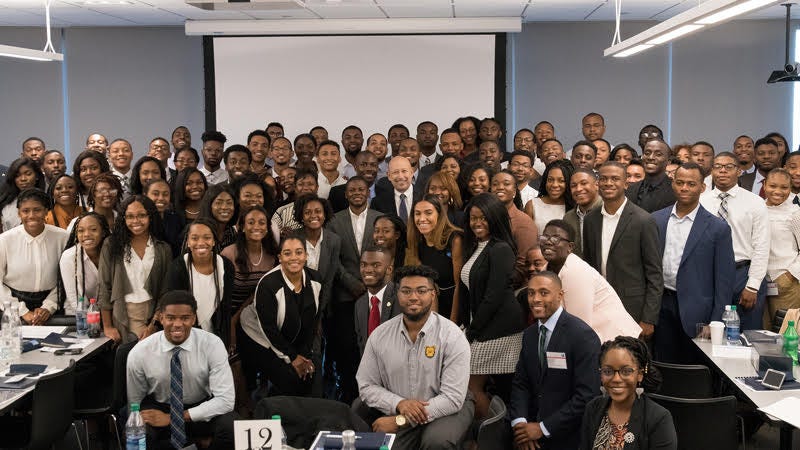Goldman Sachs: For Black & Low-Income Students, HBCUs Do It Better Than "Ivy League"
From Goldman Sachs
Historically Black Colleges and Universities (HBCUs) have played a pivotal role in the education and equality of Black Americans for almost two centuries—yet these institutions are systemically underfunded and continue to face large gaps in state and federal funding, private donations, and endowments relative to their predominantly white peers. For these institutions to thrive, financial commitments need to be broad, intentional, and sustainable.
In a new report from Goldman Sachs Research, Gizelle George-Joseph and Devesh Kodnani delve into the data on the role HBCUs play in promoting social and economic mobility for Black Americans, and discuss actions that policymakers and the private sector can take to bridge funding gaps. The case for investing in HBCUs centers on their unique position to help reduce racial, education and economic inequities experienced by Black Americans which will improve Black communities and by extension, the country. One of the key tenets of our inclusive growth research is that equity makes for not only a fairer, but also a richer society.
Academic research finds that although college enrollment of low-income students has increased significantly over the last 20 years, access to colleges that offer the highest mobility success has largely stalled for low-income students. Schools that enroll high numbers of low-income students provide a scalable model for advancing upward mobility for a greater number of students. HBCUs advance students from lower-income families to higher incomes at roughly twice the rate of non-minority serving institutions.





